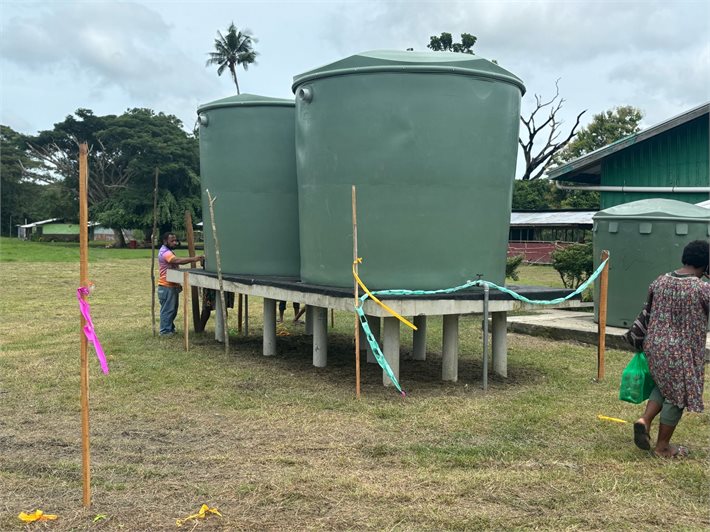
How Papua New Guinea is Adapting to Climate Change
In Papua New Guinea, the effects of climate change are putting communities at risk - threatening access to clean water, food security, and overall health. But thanks to the Climate Change Resilience Programme (CCRP), led by Matela, local communities are adapting in innovative ways.
Matela, a staff member of The Leprosy Mission (TLM) in Papua New Guinea, coordinates the Climate Change Resilience Programme (CCRP), which is helping local communities adapt to the growing challenges of climate change. The CCRP focuses on providing sustainable solutions to some of the region's most pressing issues, such as access to clean water, food security, and environmental protection. These improvements are also playing a crucial role in preventing and supporting individuals affected by leprosy.
In many communities across Papua New Guinea, poor nutrition and unsafe water quality remain major challenges. Contaminated water sources can lead to waterborne diseases, which, when combined with poor nutrition, compromise immune systems and make individuals more vulnerable to infections and chronic illnesses. For those with leprosy or those at risk of contracting it, these conditions can significantly worsen their health outcomes. Leprosy affects the nervous system and can result in severe physical disabilities, particularly if not treated early. Access to clean water and better nutrition plays a key role in preventing these complications and improving the overall health of affected individuals.
One of the main initiatives under the CCRP is the installation of rainwater catchment systems in 5 communities across the Central Province, an area that experiences long dry spells, with up to nine months of the year being particularly arid. These catchments, located near health facilities and schools, provide safe drinking water, improve sanitation, and support the health of the local population, particularly during the dry season. Access to clean water helps reduce the risk of waterborne diseases and, when paired with improved nutrition, strengthens immune systems, reducing the likelihood of leprosy and other infections.
Beyond water access, the programme also focuses on climate-resilient agricultural practices. Communities are being trained to plant breadfruit trees and restore mangrove ecosystems to help protect against the impacts of sea level rise and coastal winds. In three coastal communities in West, mangrove planting efforts are underway, aiming to protect vulnerable shorelines and provide a natural barrier against the elements. These practices also help improve food security, ensuring communities have access to nutritious food, which is essential for strengthening immunity and health - key factors in preventing and managing leprosy.

A crucial part of the programme involves capacity-building for climate change committees in 15 communities. These committees are being trained to actively carry out climate change mitigation and adaptation efforts, which has empowered locals to integrate climate-resilient practices into their daily lives. The result is a more informed and resilient population, able to cope better with the challenges of climate change and its impacts on both nutrition and water quality.
These improvements are not only helping prevent the spread of diseases but also improving the lives of those already affected by leprosy. Clean water access and better nutrition contribute to reducing the severity of leprosy symptoms, enabling those diagnosed to better manage their condition and live healthier lives. Through these efforts, communities are not only becoming more resilient to climate change but are also taking vital steps toward better health outcomes, particularly for those affected by leprosy.
The impact of the CCRP has been profound. People are becoming more aware of climate change and its effects on their health, food sources, and water access. By addressing the root causes of poor nutrition, unsafe water quality, and environmental vulnerability, the programme is enhancing overall well-being.
